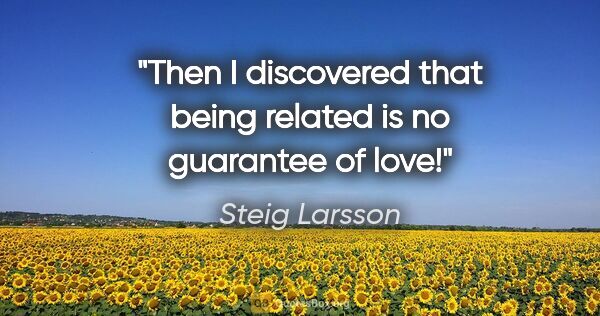Relating Quotes (page 30)
The solutions put forth by imperialism are the quintessence of simplicity...When they speak of the problems of population and birth, they are in no way moved by concepts related to the interests of the family or of society...Just when science and technology are making incredible advances in all fields, they resort to technology to suppress revolutions and ask the help of science to prevent population growth. In short, the peoples are not to make revolutions, and women are not to give birth....
Fidel Castro
Idealism, though just in its premises, and often daring and honest in their application, is stultified by the exclusive intellectualism of its own methods: by its fatal trust in the squirrel-work of the industrious brain instead of the piercing vision of the desirous heart. It interests man, but does not involve him in its processes: does not catch him up to the new and more real life which it describes. Hence the thing that matters, the living thing, has somehow escaped it; and its...
Evelyn Underhill
Pure in heart means to be sing-hearted... to will one thing- God. All (Jesus)'s moments flowed from His single-heartedness, from His intimacy with God. That was His core. Christianity is full of paradoxes and this is one of the strangest. When we are centered in God alone, we are able to relate to more of life and the world, and find more meaning in them. In some way a centered life becomes wider and fuller. To form one's life around this single perspective enables us to deal with more...
Sue Monk Kidd
We are accused of being obsessed by property. The truth is the other way round. It is the society and culture in question which is so obsessed. Yet to an obsessive his obsession always seems to be of the nature of things and so is not recognized for what it is. The relation between property and art in European culture appears natural to that culture, and consequently if somebody demonstrates the extent of the property interest in a given cultural field, it is said to be a demonstration of his...
John Berger
The core symbols we use for God represent what we take to be the highest good.... These symbols or images shape our worldview, our ethical system, and our social practice--how we relate to one another. For instance, [Elizabeth A.] Johnson suggests that if a religion speaks about God as warrior, using militaristic language such as how "he crushes his enemies" and summoning people to become soldiers in God's army, then the people tend to become militaristic and aggressive. Likewise, if the key...
Sue Monk Kidd
Offered a job as book critic for Time magazine as a young man, Bellow had been interviewed by Chambers and asked to give his opinion about William Wordsworth. Replying perhaps too quickly that Wordsworth had been a Romantic poet, he had been brusquely informed by Chambers that there was no place for him at the magazine. Bellow had often wondered, he told us, what he ought to have said. I suggested that he might have got the job if he'd replied that Wordsworth was a once-revolutionary poet who...
Christopher Hitchens
Davout looked up and gazed intently at him. For some seconds they looked at one another, and that look saved Pierre. Apart from conditions of war and law, that look established human relations between the two men. At that moment an immense number of things passed dimly through both their minds, and they realized that they were both children of humanity and were brothers.
Leo Tolstoy
Gaudium is what I dream of: to enjoy a lifelong pleasure. But being unable to accede to Gaudium, from which I am separated by a thousand obstacles, I dream of falling back on Laetitia: if I could manage to confine myself to the lively pleasures the other affords me, without contaminating them, mortifying them by the anxiety which serves as their hinge? If I could take an anthological view of the amorous relation? If I were to understand, initially, that a great preoccupation does not include...
Roland Barthes

Here then we are first to consider a book, presented to us by a barbarous and ignorant people, written in an age when they were still more barbarous, and in all probability long after the facts which it relates, corroborated by no concurring testimony, and resembling those fabulous accounts, which every nation gives of its origin.
David Hume
